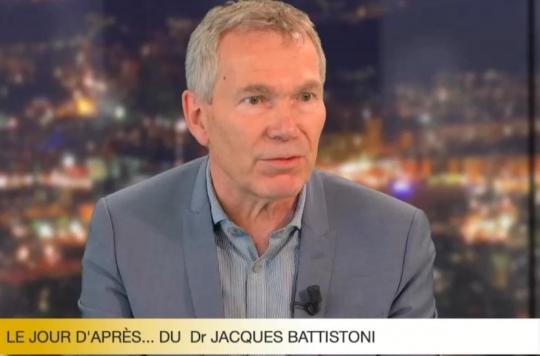To reduce the hole in Social Security, the Court of Auditors advocates selective agreements. It also recommends limiting installation in sector 2.

The Social Security deficit fell again in 2016. According to the latest report from the Court of Auditors, it stood at 7 billion euros against 10 billion last year. We are far from its historically highest level reached in 2010 with nearly 30 billion euros in deficit.
But this decline is not going fast enough, judge the Sages of rue Cambon who particularly deplore the government’s decision to postpone the objective of returning to balance to 2020. Or a year later than expected. “To accelerate it is however as necessary as possible”, they assure.
A “major stake” which must involve a reorganization of the offer of care in the territory. “Structural reforms of the health care system are necessary in particular to remedy the territorial and financial inequalities which are widening and compromise equal access to quality care for all”, criticize the experts. Liberal doctors, and in particular specialist practitioners, are directly targeted.
Too many fee overruns
In 2015, expenses related to acts of liberal specialists reached 16.1 billion euros. A sector which is experiencing an increase in expenditure, on the one hand by an increase in technical acts, and on the other hand, by the excess fees charged by sector 2 and clinics. However, “the acts are not always relevant, as illustrated by the case of medical imaging for which redundancies are regularly observed”, notes the Court of Auditors.
Another problem: territorial and financial inequalities in access to care are worsening. While there are more and more practitioners (from 53,800 in 2005 to 61,500 in 2016), “persistent obstacles tend to worsen in accessing specialty care in the city. “
Due to a lack of doctors, the population of certain territories is faced with waiting times of several months. In addition, there is a higher proportion of doctors in sector 2 (39.2% in 2006 to 44.3% in 2015). Result: patients turn to the hospital, point the Wise Men.
Selective agreement for specialists
For the Court of Auditors, the culprit is all found. This is the healthcare access contract (CAS). Signatory physicians are expected to commit to stabilizing their fee overruns and reducing the proportion of their acts at an opposable rate. “Despite significant financial incentives (183 billion euros in 2015), the CAS has limited effects”, note the institution specifying that “to avoid 1 euro overrun, health insurance spent 10 euros in 2015”.
Experts believe that it is now necessary to put some order in this sector, and to ease off the aid granted to doctors. They are also in favor of a “selective agreement” of specialists, and even propose that the agreement of new professionals in over-staffed areas “be subject to installation in sector 1 in order to enable a financially affordable offer to be recreated there. “
On the side of the liberal doctors’ unions, we are suffocating. On Twitter, the SML denounced “an anti-liberal indictment”. The CSMF, the majority union, believes that the Court of Auditors is “wrong target”.
Reduce the number of pharmacies
For the Sages of rue Cambon, France has too many pharmacies. 10,400 pharmacies are said to be redundant in France. “The number of pharmacies is almost twice the regulatory ceiling. At the current, very slow pace of its reduction, it would take a century for this surplus to be absorbed, ”they criticize.
According to their calculations, a pharmacy in France serves around 3,000 inhabitants, against 4,000 in Germany or 4,500 in the United Kingdom. A surplus that does not prevent them from making a profit, points out the Court of Auditors while recognizing that the situation is difficult for 10% of them
She believes that it is necessary to introduce “competition” by rationalizing the number of pharmacies, and by developing new forms of drug distribution. “Thus, the dispensing monopoly could be limited to drugs delivered on medical prescription” and the sale of drugs on the Internet “relaxed”
.













